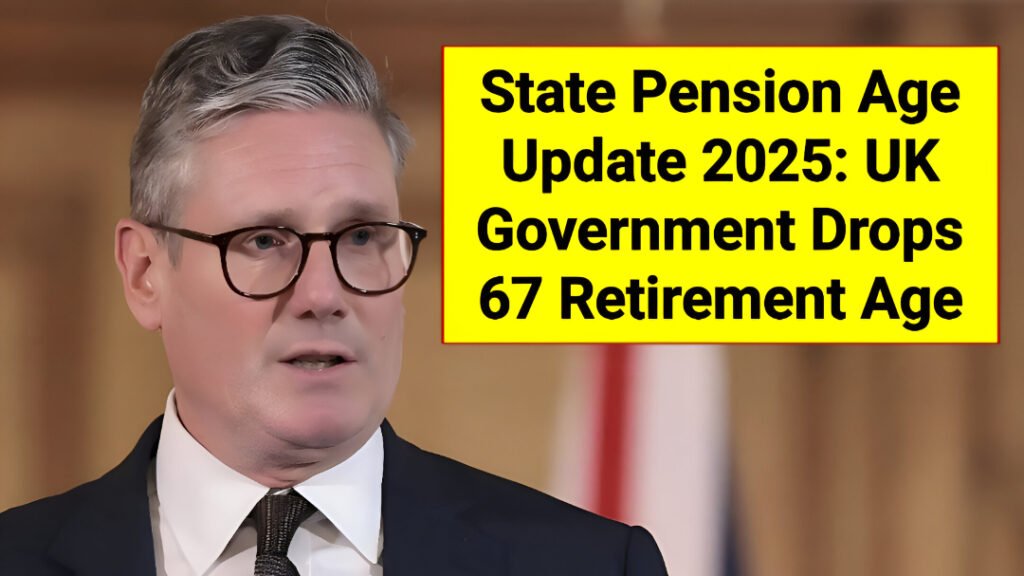The UK government has confirmed a major state pension age update in 2025, reversing earlier plans to raise the retirement age to 67. This decision brings relief to millions of workers approaching retirement, many of whom were worried about being forced to work longer in physically demanding jobs. By dropping the planned rise, the government aims to balance fairness, financial stability, and public wellbeing.
What Was the Previous Pension Age Plan?
Previously, the government had announced that the state pension age would gradually increase from 66 to 67 between 2026 and 2028. This was part of long-term measures to adjust for longer life expectancy and the rising costs of pensions. However, the plan faced strong criticism from trade unions, campaigners, and ordinary citizens who felt the change was unfair.
Why Did the Government Drop the 67 Age Rule?
The decision to cancel the increase comes after new research showed that life expectancy in the UK has not risen as much as previously predicted. Rising health inequalities, regional differences, and the impact of the cost-of-living crisis also made the plan controversial. Ministers agreed that it would be unreasonable to ask people to work longer when many are already struggling with health issues before retirement.
New State Pension Age in 2025
From 2025 onwards, the state pension age will remain fixed at 66, giving workers more certainty in planning their retirement. This update ensures that those nearing retirement can claim their pension without facing additional delays, while future generations can still expect fair treatment in later policy reviews.
Impact on UK Workers and Pensioners
For millions of workers, particularly those in manual and lower-paid jobs, this announcement provides immediate relief. Many had feared they would have to continue working despite health challenges or reduced income opportunities. Pensioners’ groups have welcomed the update, saying it gives older people the dignity to retire without unnecessary stress.
Financial Impact on the Government
While keeping the pension age at 66 will cost the government billions of pounds more in the long term, ministers argue it is a worthwhile investment. They emphasise that public trust in the pension system is essential and that economic pressures should not come at the expense of fairness for older citizens.
How This Affects Future Reviews
The government has also confirmed that the state pension age will continue to be reviewed every five years, taking into account updated health, economic, and life expectancy data. However, for now, the 2025 decision ensures stability for people close to retirement, without sudden policy shocks.
Reaction from Campaigners and Unions
Campaign groups and unions have welcomed the decision as a “victory for common sense.” They argue that raising the retirement age would have punished the most vulnerable, especially those with shorter life expectancies. Many see the update as a step towards building a fairer pension system in the UK.
What Pensioners Should Do Next
Anyone approaching 66 should check their pension forecast through the UK government website to confirm their eligibility and expected payments. It’s also important to review workplace pensions, savings, and other retirement income sources to ensure a secure financial future.
Wider Social Benefits of the Change
Experts highlight that maintaining the retirement age at 66 could also benefit society more broadly. It may reduce strain on the NHS, as fewer older people are forced to work beyond their health limits, and could also open up more job opportunities for younger workers.
Conclusion
The State Pension Age Update 2025 confirms that the UK government will not push ahead with raising the age to 67. By keeping retirement at 66, the decision offers security, fairness, and dignity to millions of citizens. This landmark policy shift is expected to have lasting positive effects on pensioners, workers, and the wider UK economy.
